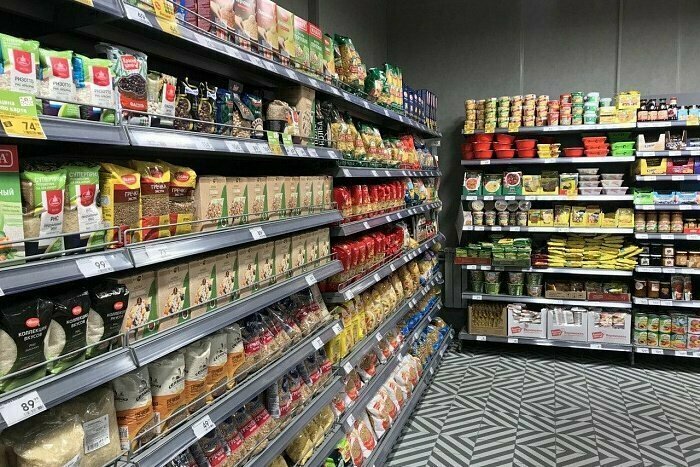
Manufacturers of butter, vermicelli, sugar, salt, flour, rice, millet, black tea and other essential products, wanting to declare their compliance with GOST, were forced not to change packaging volumes. The Prosecutor General’s Office of Russia achieved the corresponding changes in order to combat the “tricks” of suppliers. How this will affect the price level and why this is necessary at all – in the material of Gazeta.Ru. The Russian Ministry of Agriculture has already informed trade unions about the adopted amendment to the interstate standard on fixed packaging volumes for socially significant types of products. – A structural unit of the Russian Ministry of Agriculture informed industry unions about the adopted change to the interstate standard GOST 8.579-2019 “State system for ensuring the uniformity of measurements. Requirements for the quantity of packaged products during their production, packaging, and sales.” and import, reported the press service of the Ministry of Agriculture of Russia. The new requirements will apply only to those manufacturers who declare that the packaging of their products complies with GOST. Buckwheat is packaged in 500, 1000, 2000 grams, milk – 200, 250, 500, 1000, 2000 milliliters. – The practice of prosecutorial supervision shows that manufacturers often reduce the volume, quantity and weight of products without reducing, and in some cases even increasing, their selling price. Such manipulations deceive consumers by correspondence. volume and weight of goods to their cost, which explains the need for innovation in the work of a doctor. The list of socially significant products is as follows: beef, pork and lamb, except boneless meat, chicken, except legs, whole frozen fish, butter and sunflower oil, milk, chicken eggs , sugar, salt, black tea, flour, rye and wheat bread, polished rice, buckwheat, millet, vermicelli, potatoes, white cabbage, onions, carrots and apples. Manufacturers often resort to packaging tricks against the backdrop of an economic crisis and rising prices. To keep the price tags the same, the volume and weight of the goods are reduced. For example, milk is bottled not in liter containers, but in 900-milligram containers. The beer is sold in a 0.5 liter can, but only holds 450 ml. Additionally, packages may often list weight rather than volume. “Marketers have a good idea of the level of knowledge of Russians about physics: most consumers do not realize that a kilogram of milk is less than a liter,” noted Dmitry Yanin, chairman of the board of the International Confederation of Consumer Societies. . . In stores you can also often find nine eggs instead of a dozen. In the winter of 2019, State Duma deputy Mikhail Degtyarev even submitted a corresponding appeal to the Ministry of Industry and Trade. The department’s response states that the requirements for food products are established by the technical regulations of the Customs Union. They say that the marks on the label must be reliable, clear and easy to read. The regulations do not specify a fixed volume or number of units of product in a package. The FAS then stated that the “nine eggs” may violate the norms of Russian legislation on the protection of consumer rights, but does not violate antimonopoly legislation. Also on the shelves are “thinner” chocolate bars of 80 g instead of the usual 100 g and packs of chips, which retain the same shape but have decreased in diameter. The new standards will have a positive impact on consumers, “especially those who are not used to reading the ingredients and volume or weight of goods, such as pensioners,” says Galina Sorokina, a professor in the Department of Global and Global Economics. Relations at the State University of Management. At the same time, the expert warned that due to the changed rules, buyers may feel that prices in stores have increased. Member of the Russian Lawyers Association Evgeniy Pantasia agrees with Sorokina. Increasing volume could lead to a proportional increase in production costs, he says. However, strict packaging standards will set production standards that could have a positive impact in the future, Pantasia adds. – Downsizing is a response of producers to a decrease in purchasing power. Today there is clearly no high demand for “flat” packaging; rather, the choice is changing towards smaller volumes,” said one of the federal food chains. Retail trade expert Mikhail Lachugin believes that, despite the new standards, products with non-standard volume and weight will not disappear. He points to a hole in the legislation: a product can be produced according to GOST, but packaged according to specifications (technical conditions – requirements for specific types of products, which, unlike GOST, are mandatory). Co-owner of the Real chain, Alexander Myshinsky, adds that GOST is now nothing more than “just a marketing tool.” This is not always a sign of quality, he concludes.
0 комментариев